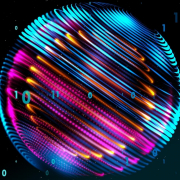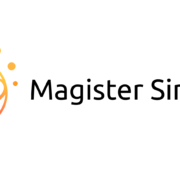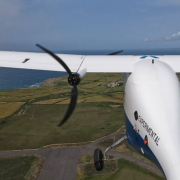EAGER: Reaching 5G-Advanced and 6G through network simulation
Funded by ESA, the EAGER project researches future 5G-Advanced and 6G Non-Terrestrial Network (NTN) technologies. Read here why the work is crucial and how Magister is taking part in it.
Standardized communication systems require several years of prior research, during which the future technology alternatives and potential must be identified. The EAGER project will research 5G-Advanced and 6G NTN technologies towards 3GPP standardization in the coming years.
The EAGER project will pave the way for use cases, technology and techniques that will form the heart of 5G-Advanced and 6G satellite communications. Accompanying Magister in the ESA-funded project are University of Bologna, Thales Alenia Space Italy, Thales Alenia Space France, and Martel Innovate.
“The EAGER project is very much a continuation of Magister’s previous projects as well as core business: The ALIX project provided the groundwork for 3GPP’s Release 17 NTN and the DYNASAT project promotes and demonstrates selected 5G NTN bandwidth efficient and spectrum sharing technologies. Now we are looking towards the upcoming 3GPP releases,” says the CEO of Magister Solutions, Jani Puttonen.
The work started in May 2022 and will target two different time frames:
“The medium-term time frame is to prepare for 3GPP’s Release 19 and 20 by working on 5G-Advanced technologies. The longer term time frame concerns preparing for Release 21 and beyond, i.e. potential 6G technologies.”
Magister’s system level and network simulators look beyond 5G and 6G
We at Magister are leading the project’s simulative analysis of the technologies under study. This means that our simulators will be further enhanced to be able to research the future technologies.
Magister has two simulators for potential use in the project: (i) C-DReAM, a capacity level simulator for LEO satellite constellation networks and (ii) 5G NTN SLS, a detailed system / network packet level system simulator to be used for system / protocol level performance evaluations. In addition, (iii) link level simulations may also be needed to explore various lower layer communication link metrics.
“Magister’s network level simulator is more than likely to be used for 5G-Advanced research”, Puttonen adds. “The closer the solutions of the future are to now, the more detailed and specific the simulation and simulator requirements.”
During the project, Magister will not only develop simulators to research the future NTN technologies but also enhance its own services – SimLab customers are sure to get a taste of future simulation possibilities.
“Multiple potential technologies will be researched and tested via simulations in this project. These techniques may very well be the basis for future 5G-Advanced and 6G standards.”
Are you interested in finding out how SimLab could help your business? Read more about SimLab and buy it here!











